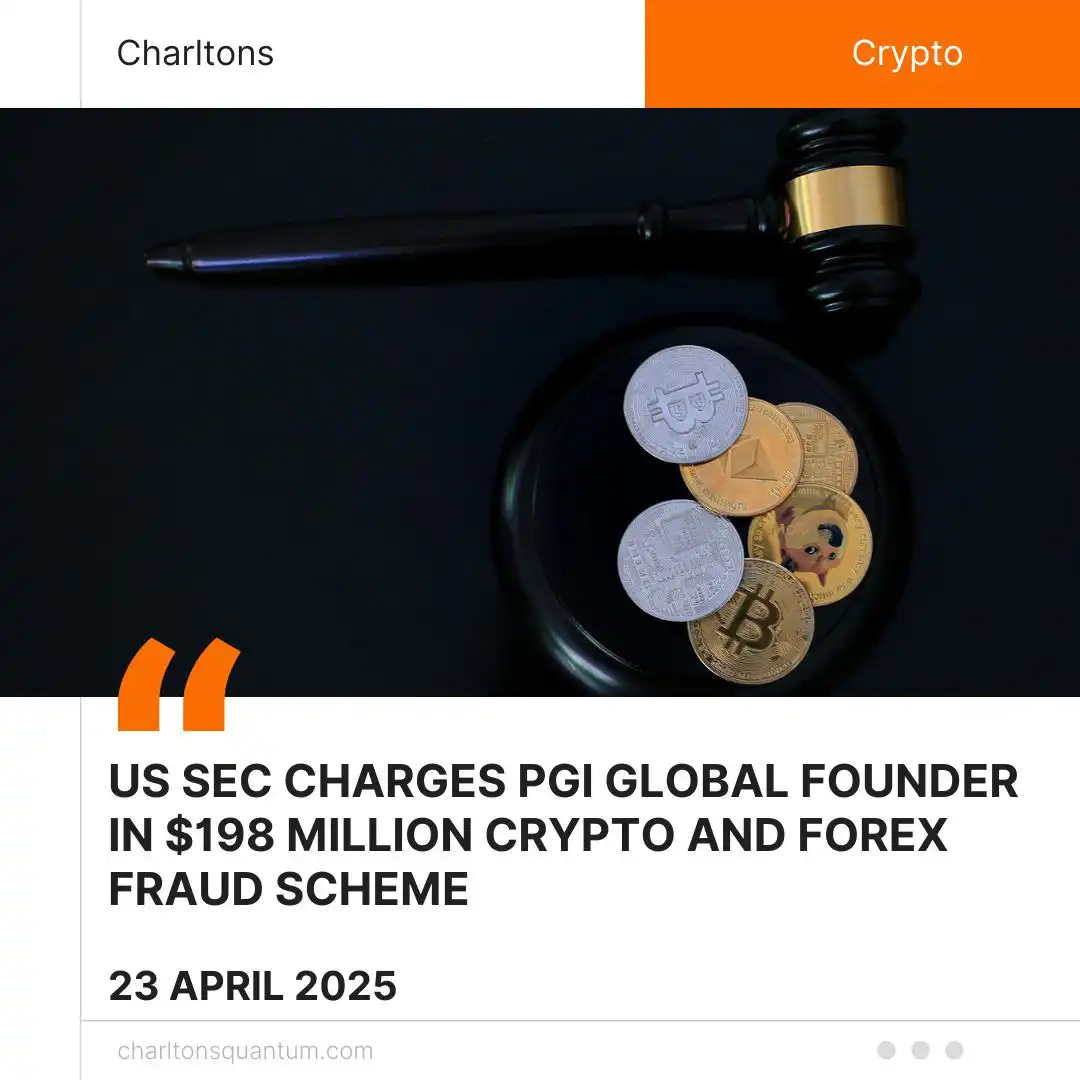
On 22 April 2025, the United States Securities and Exchange Commission (US SEC) filed a civil complaint in the United States District Court for the Eastern District of Virginia, initiating enforcement proceedings demanding jury trial against Ramil Ventura Palafox, the founder and operator of PGI Global, also known as Praetorian Group International Corporation. The complaint alleges that Palafox orchestrated a fraudulent investment scheme which raised approximately $198 million from global investors by offering unregistered securities in the form of “membership packages” promising high returns from purported crypto asset and foreign exchange trading.
As alleged in the complaint, from January 2020 to October 2021, PGI Global marketed itself as a crypto and Forex trading platform offering guaranteed passive returns. Palafox allegedly solicited investors through promotional events, social media platforms, and direct communications, promising daily returns of 0.5% to 3% and total returns of up to 200% on investments. The packages were also allegedly structured to include multi-level marketing-style referral incentives. However, instead of conducting trading as promised, Palafox allegedly misappropriated over $57 million in investor funds for personal use, including purchases of luxury vehicles, watches, jewellery, and real estate. The remaining funds were allegedly used to pay purported returns to earlier investors in a Ponzi-like manner until the scheme collapsed in late 2021.
The complaint further alleges that Palafox created the false impression of legitimate trading activity through fake dashboards, promotional materials, and false claims regarding regulatory licences in jurisdictions such as the Philippines and Estonia. PGI Global was not registered to sell securities, nor were the membership packages registered or exempt from registration under United States securities laws. The complaint also names four relief defendants, BBMR Threshold LLC, Darvie Mendoza, Marissa Mendoza Palafox, and Linda Ventura, who allegedly received funds and assets derived from misappropriated investor money without legitimate entitlement.
According to the US SEC, PGI Global’s operations were conducted through use of interstate commerce, including email, telephone, and blockchain transactions. The complaint notes that the scheme involved the transfer of investor funds via Bitcoin and fiat currency, with certain investor events held in Alexandria, Virginia. The fraudulent scheme allegedly ceased by October 2021, when the US Internal Revenue Service seized PGI Global’s website and the Philippine Securities and Exchange Commission issued a fraud alert.
The US SEC seeks permanent injunctive relief against Palafox, including prohibitions on participation in future offerings of securities, particularly involving crypto assets or multi-level marketing structures. The complaint also requests disgorgement of ill-gotten gains with prejudgment interest, civil monetary penalties under United States securities laws, and conduct-based injunctions. Relief defendants are similarly subject to claims for unjust enrichment and the return of investor funds.
The charges against Palafox include alleged violations of Section 10(b) of the United States Securities Exchange Act of 1934 and Rule 10b-5 thereunder, as well as Sections 5(a), 5(c), and 17(a) of the United States Securities Act of 1933. The US SEC asserts that PGI Global’s “membership packages” constituted securities as defined under United States federal law, particularly under the investment contract test set forth in SEC v. W.J. Howey Co., 328 U.S. 293 (1946).
The litigation is being handled by the US SEC’s Philadelphia Regional Office and supervised by the Cyber and Emerging Technologies Unit. Attorneys Spencer Willig, Gregory Bockin, and Eugene Hansen are representing the Commission in court. The US SEC acknowledges the assistance of the US Department of Justice, the Federal Bureau of Investigation (FBI), and the Internal Revenue Service (IRS) in its parallel investigation.
As stated by Scott Thompson, Associate Director of the US SEC’s Philadelphia Office, “As alleged in our complaint, Palafox attracted investors with the allure of guaranteed profits from sophisticated crypto asset and foreign exchange trading, but instead of trading, Palafox bought himself and his family cars, watches, and homes using millions of dollars of investor funds.” Laura D’Allaird, Chief of the Cyber and Emerging Technologies Unit, added, “Palafox used the guise of innovation to lure investors into lining his pockets with millions of dollars while leaving many victims empty-handed.”
The US SEC continues to investigate the matter and has urged investors to refer to its resources on Investor.gov to help detect and avoid investment fraud schemes, especially those falsely presenting as legitimate crypto asset or multi-level marketing ventures.
(Source: https://www.sec.gov/newsroom/press-releases/2025-69)





